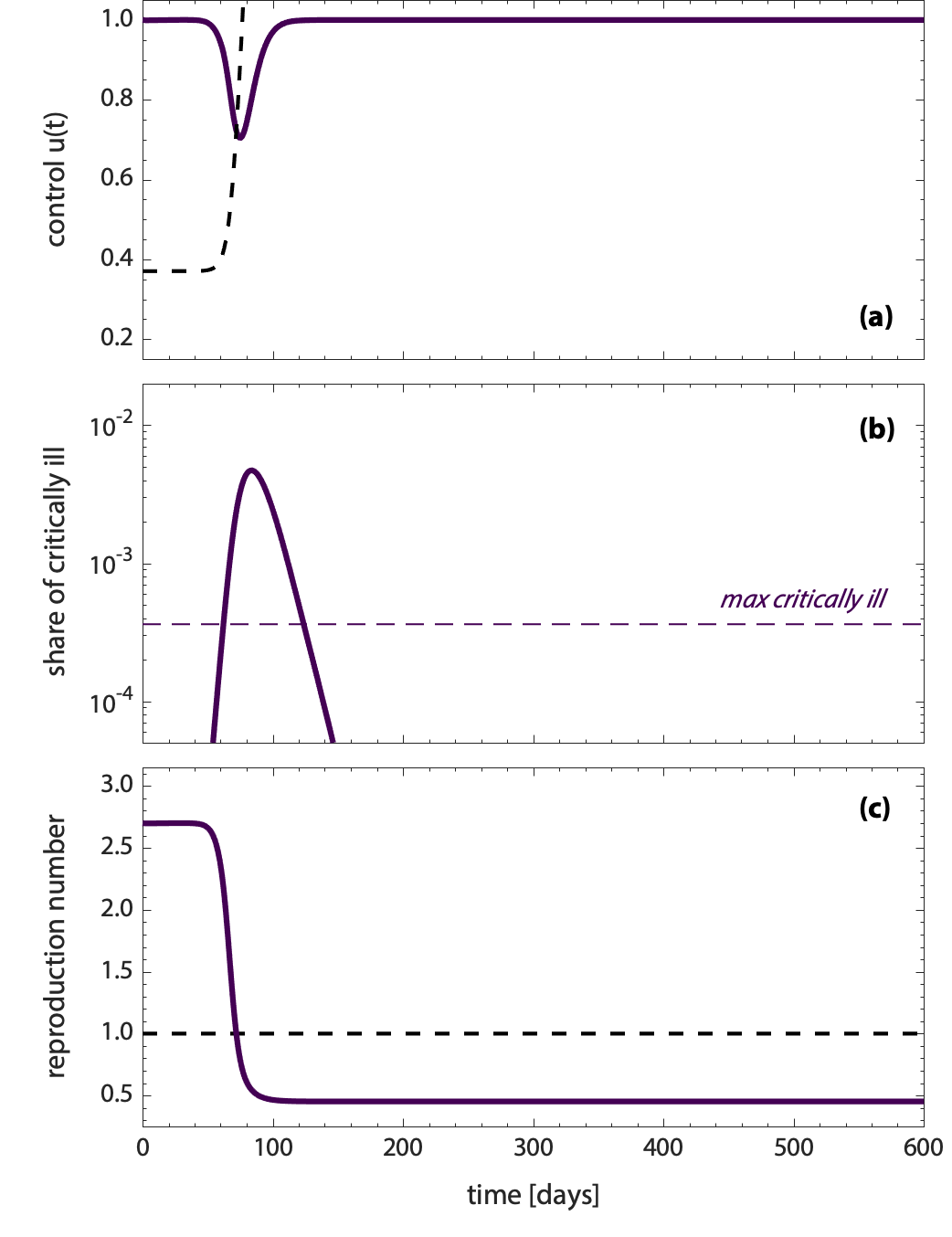Leibniz Research Network
Mathematical Modeling and Simulation (MMS)
Research on COVID-19 related topics
For the intensive research worldwide in connection with the COVID-19 pandemic, mathematical modeling and simulation provide essential contributions, for example, to the understanding of the course of infection and the effects on society. The mathematical perspective is becoming increasingly important for the systematic investigation and interpretation of data sets and insights. Many aspects of applied mathematical research and activities of Leibniz researchers are relevant here.
- Both the virus diseases of the 2013 Ebola regional epidemic and the current COVID-19 global pandemic have seen virus mutations
between hosts - a normal phenomenon with the potential to turn viruses even more harmful. A team of scientists including researchers
from HU Berlin and PIK Potsdam has employed advanced mathematical models to explore these dynamics. Their findings confirm public
health responses like suspending long-haul travel, but also the call to stay at home. Further, they underline the importance of closely
tracking genetic mutations during virus outbreaks to facilitate crisis response.
» S. Rüdiger, A. Plietzsch, F. Sagués et al. Epidemics with mutating infectivity on small-world networks, Sci Rep 10, 5919 (2020). DOI: 10.1038/s41598-020-62597-5 -
Non-pharmaceutical social distancing measures such as home quarantine, school closures, prohibition of mass events and even curfews are currently intensely discussed strategies to control the spread of the COVID-19 pandemic. On the basis of a simple epidemiological model and continuous time optimal control theory, WIAS researchers Markus Kantner and Thomas Koprucki have computed the optimal, non-pharmaceutical intervention strategy for transmission reduction for the case where no vaccine becomes available and the complete containment of the virus is not possible, see Figure.
 Fig.: Optimal control of non-pharmaceutical measures to minimize the disease-related deaths while simultaneously achieving herd immunity with minimal socio-economic costs. (a) The function u(t) quantifies the mean reduction of infectious contacts. (b) Optimal control limits the maximum number of simultaneously critically ill patients by enforcing a dynamical equilibrium. (c) Reproduction rate in the course of time.
Fig.: Optimal control of non-pharmaceutical measures to minimize the disease-related deaths while simultaneously achieving herd immunity with minimal socio-economic costs. (a) The function u(t) quantifies the mean reduction of infectious contacts. (b) Optimal control limits the maximum number of simultaneously critically ill patients by enforcing a dynamical equilibrium. (c) Reproduction rate in the course of time.
» M. Kantner, T. Koprucki, Beyond just "flattening the curve": Optimal control of epidemics with purely non-pharmaceutical interventions, J. Math. Industry 10, 23 (2020). DOI: 10.1186/s13362-020-00091-3 - The analysis and prediction of the spread of infections such as the coronavirus are characterized by numerous uncertainties, for example,
regarding spatial clustering or the individual transmission rate of individuals. Since 2018, researchers of the WIAS group Interacting Random
Systems around Alexander Hinsen and Benedikt Jahnel are investigating corresponding stochastic epidemic models on random networks. This
research enables, among other things, predictions about the speed of propagation, the form of infected clusters and possible decentralized
countermeasures. The methods were initially developed in the context of malware propagation in ad hoc telecommunication networks and are now
being further developed also for epidemiological applications.
» A. Hinsen, B. Jahnel, E. Cali, J.-P. Wary, Phase transitions for chase-escape models on Poisson-Gilbert graphs, Electron. Commun. Probab., 25:25 (2020), https://projecteuclid.org/euclid.ecp/1585188174 - An overview of the COVID19 basic infection rate in the Open Research Knowledge Graph has been given by TIB researchers.
- A Knowledge Graph with comprehensive research data on COVID19 has been created at TIB (in cooperation with TwinCore Center for Infection Research, among others)
- Dietmar Hömberg (WIAS) was co-organiser of the webinar “Mathematics of the COVID19 crisis - In the eye of the storm” organised by the European Consortium for Mathematics in Industry (ECMI) on 29 April 2020, where scientists from different European countries presented comprehensive studies on the specific challenges in their countries.
- Barbara Wagner (WIAS) is member of the COVID-19 Activity Group of the European Mathematical Society (EMS).

